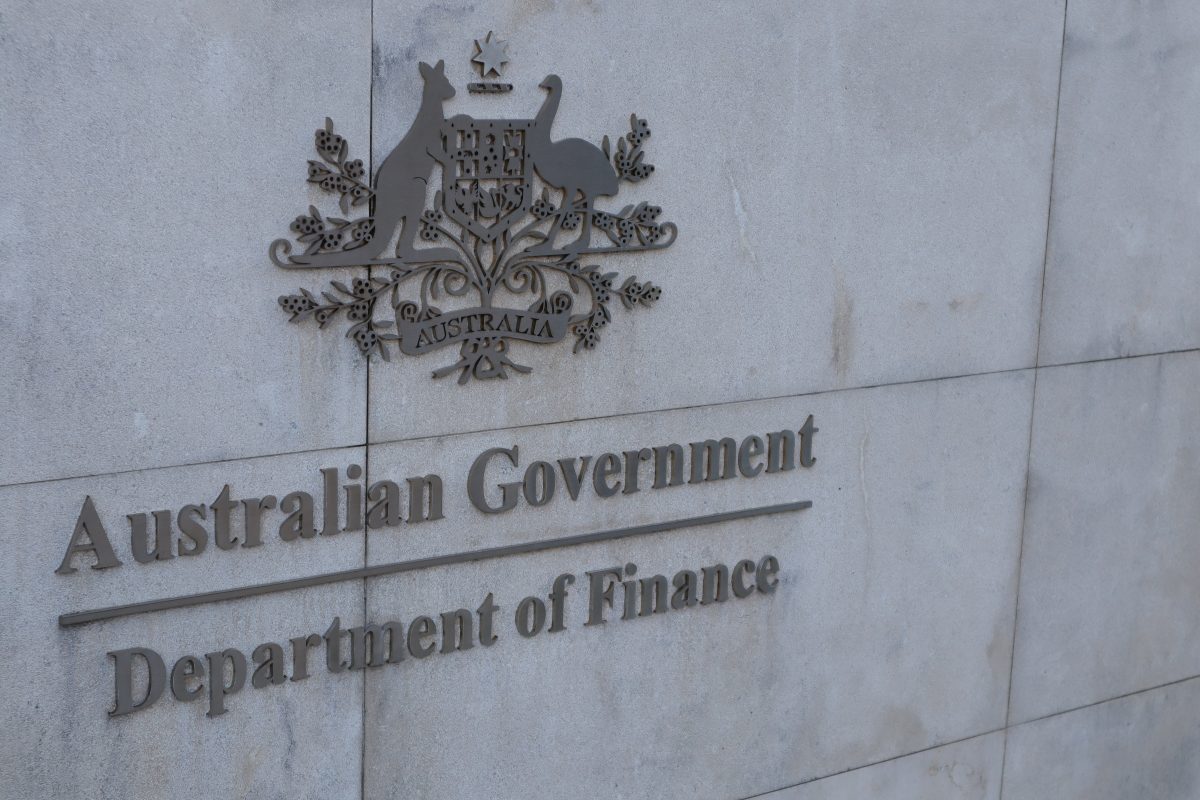
Procurement problems are plaguing the APS. Photo: David Murtagh.
It’s not just the the big consultancy firms that are getting it in the neck for creaming government contracts.
Public servants, those who have negotiated, signed off, expanded and extended contracts, are also taking a hit.
As we’ve painfully learned this year, ‘small government’ has meant lucrative contracts for thousands of businesses.
Now everyone is paying the price with more parliamentary committees in on the action as various inquiries daily uncover more salacious scandals about the mishandling of government contracts.
A lot of the focus has been on the internal culture at play in the Big Four accounting firms. As giant multinationals, they have no country, no national loyalty, and as private companies they’re rarely held to account.
The contracting binge has badly infected the Australian Public Service (APS).
As it intensified public servants’ contact with moneyed corporate ‘partners’ and blurred the lines between staff and embedded ‘consultants’, many APS employees seemed to forget who they were working for.
Re-entering the APS briefly a few years ago, I was shocked at the poor management and lack of training around tendering contracts.
Gone was the tedious management of even the smallest contract, justifying expenditure, reporting on outcomes and pushing back on contractors trying it on with inflated invoices.
Now, there was a naïve aura of awe around consultants. I witnessed executives fawn to contractors in frankly embarrassing displays of obsequiousness.
It was as if they’d swallowed the myth that the private sector was always smarter and more efficient — it is not — and that we should be terribly grateful to it for chipping in to run the country.
The big five private firms — Accenture, KPMG, PwC, Deloitte and EY — have been the big winners of the multi-billion dollar outsourcing binge over the past six years or so.
Tens of thousands of other medium and small private businesses have also pocketed agency funds to deliver work once done by public servants bound by APS rules and laws.
Parliament’s powerful joint audit committee last week got stuck into a bunch of agencies for systemic problems with their contract management and called for major changes.
As it said, more than $80 billion was spent on more than 90,000 contracts in 2021-22 alone. That’s a huge amount of public money.
The APS contracts I was involved with tendering, managing, and more recently chastised for daring to question, were small beer compared to those being probed by the plethora of parliamentary inquiries underway.
This time in the APS, procurement budgets were doubled for no discernible reason by junior executives with zero knowledge of the subject area.
Colleagues’ former business partners were added to the list of potential tenderers in defiance of our conflict of interest training.
Contracts deemed “sensitive” had no milestones, there were no reports on outcomes, no records of work done and yet they were repeatedly renewed through limited tender, year after year, after year. Competitors had no chance.
What annoyed me most was that competent public servants could easily have done the ongoing work more effectively.
The audit committee didn’t mince its words: “Public servants need to get far more comfortable and skilled with playing the field and sharpening their pencils on suppliers, even if this leads to difficult conversations and rejection.”
Finance Minister Katy Gallagher says the government’s APS reform agenda is “about restoring the public’s trust and faith in government and its institutions”.
Changes to the Public Service Act Gallagher tabled last week, along with $10.9 million she’s budgeted for a new APS in-house consulting service, will go a long way to restoring the damage.
Still, it will take time to garner a bank of internal policy and technical expertise and overturn the undermining culture that has evolved with excess outsourcing.
An entire generation of APS employees has experienced excessive ministerial interference which politicised their roles and came with the expectation that they contract their work to private companies.
They need serious probity, conflict, legal and financial contract management training, as the government and parliament have called for. And not online multiple choice, tick-box training you can’t fail.
Put simply, every public servant should have drummed into their heads with boring regularly that they’re handling other people’s money when contracting.
Original Article published by Deb Nesbitt on Riotact.









